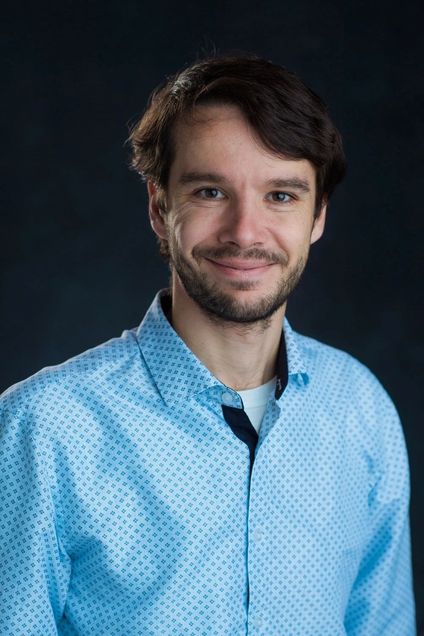Ignaty Leshchiner, Ph.D.

Assistant Professor of Medicine
Affiliated Faculty, Broad Institute of MIT and Harvard
Education
Contact Information
Email: igleshch@bu.edu
Office: K404
Research Interests
Computational biology and cancer bioinformatics. Research in the lab is focused on applying new genomic technologies, computational analysis and AI methods on data from patients’ tumors to understand the biology behind tumor development, treatment evasion, and progression to metastasis. We are developing and applying tools for simultaneous analysis of multiple samples from the same patient, clonal structure (PhylogicNDT), integration of single cell genomics and transcriptomics, reconstruction of cell subpopulations, their growth kinetics and expression, tumor micro-environment effects, estimation of order of events (“timing”) during tumor development and progression. We work with pre- and post- treatment samples, autopsies and longitudinal blood biopsies in solid and blood malignancies.
Multiomic Technology Development. Integration of multi-modal data (genomic, transcriptomic, proteomic, imaging and single cell) obtained from patients opens up a new era of computational analysis. We are developing tools and technologies to analyze and improve single cell/nuclei RNA, DNA and ATAC sequencing, interpret spatial imaging and spatial transcriptomic datasets, patients’ medical records and radiographic data.
Predicting Treatment Response. Distant tumor sites often respond to treatment and grow at varying rates, which suggests multiple resistance mechanisms evolving at the same time in one patient. Understanding subclonal dynamics and relationships is key for identifying and studying independently resistant cell subpopulations and their deferential response to chemo-, immuno- or targeted therapy. We develop methodologies to discover and monitor evolution of multiple simultaneous resistance mechanisms in a patient, study short- and long-term dynamics and phenotypes of subclonal cell populations before and during treatment, early response detection and understanding the differential treatment response of subclones, including dynamics of response and recurrence under drug pressure and transcriptional changes upon drug exposure.
Selected Publications
Leshchiner, I.*, Mroz, E.*, Cha, J.*, . . . Getz, G., Rocco W. Inferring early genetic progression in cancers with unobtainable premalignant disease. Nat Cancer, 2023;4(4):550-563. doi: 10.1038/s43018-023-00533-y. PubMed PMID: 37081260; PubMed PMCID: PMC10132986.
Parry, E. *, Leshchiner, I.*, Guièze R *, . . . , Getz, G., Wu, C.J. Evolutionary history of transformation from chronic lymphocytic leukemia to Richter syndrome. Nat Med, 2023, 29; 158–169 doi:10.1038/ s41591-022-02113-6. PMID: 36624313.
Dentro, S. C.*, Leshchiner, I.*, Haase, K.*, Tarabichi, M.*. . . Loo, P. V. (2021). Characterizing genetic intra-tumor heterogeneity across 2,658 human cancer genomes. Cell, 184 (8), 2239-2254. doi: 10.1016/j.cell.2021.03.009
Gerstung, M.*, Jolly, C.*, Leshchiner, I.*, Dentro, S. C.*, Gonzalez, S.*, Rosebrock D., . . . Loo, P. V. (2020). The evolutionary history of 2,658 cancers. Nature, 578 (7793), 122–128 doi:10.1038/s41586-019-1907-7
Parikh, A. R.*, Leshchiner, I.*, Elagina, L., Goyal, L., . . . Corcoran, R. B. (2019). Liquid versus tissue biopsy for detecting acquired resistance and tumor heterogeneity in gastrointestinal cancers. Nat Med, 25(9), 1415-1421. doi:10.1038/s41591-019-0561-9
Gruber, M.*, Bozic, I.*, Leshchiner, I.*, Livitz, D.*, Stevenson, K., Rassenti, L., . . . Wu, C. J. (2019). Growth dynamics in naturally progressing chronic lymphocytic leukaemia. Nature, 570(7762), 474-479. doi:10.1038/s41586-019-1252-x
Nissim, S., Leshchiner, I., Mancias, J. D., Greenblatt, M. B., Maertens, O., Cassa, C. A., . . .Goessling, W. (2019). Mutations in RABL3 alter KRAS prenylation and are associated with hereditary pancreatic cancer. Nat Genet, 51(9), 1308-1314. doi:10.1038/s41588-019-0475-y
Stewart, C.*, Leshchiner, I.*, Hess, J., & Getz, G. (2018). Comment on “DNA damage is a pervasive cause of sequencing errors, directly confounding variant identification”. Science, 361(6409). doi:10.1126/science.aas9824
Fishbein, L.*, Leshchiner, I.*, Walter, V.*, Danilova, L., Robertson, A. G., Johnson, A. R., . . .Wilkerson, M. D. (2017). Comprehensive Molecular Characterization of Pheochromocytoma and Paraganglioma. Cancer Cell, 31(2), 181-193. doi:10.1016/j.ccell.2017.01.001
Shaw, A. T., Friboulet, L., Leshchiner, I., Gainor, J. F., Bergqvist, S., Brooun, A., . . . Engelman, J. A. (2016). Resensitization to Crizotinib by the Lorlatinib ALK Resistance Mutation L1198F. N Engl J Med, 374(1), 54-61. doi:10.1056/NEJMoa1508887
Leshchiner, I., Alexa, K., Kelsey, P., Adzhubei, I., Austin-Tse, C. A., Cooney, J. D., . . . Sunyaev, S. R. (2012). Mutation mapping and identification by whole-genome sequencing. Genome Res, 22(8), 1541-1548. doi:10.1101/gr.135541.111
Full list of publications: